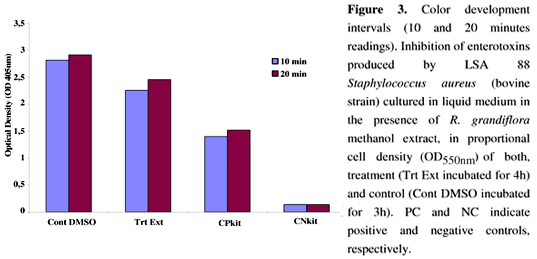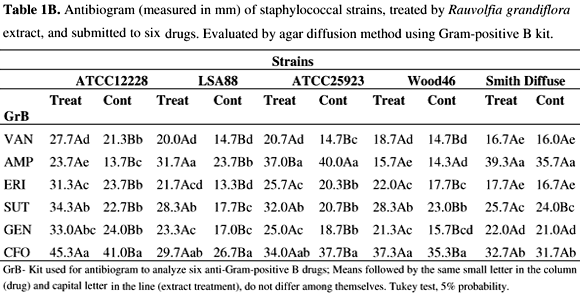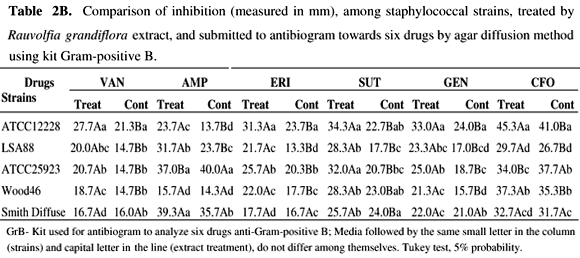Staphylococci bacteria are involved in many human and animal infections and development of alternative antimicrobial drugs against pathogenic bacteria is of great interest to the pharmaceutical industry. This study investigated the in vitro effect of Rauvolfia grandiflora methanol extract (root bark fraction) (RGE) on the density of ATCC strains of Staphylococcus aureus and Staphylococcus epidermidis, and a clinical enterotoxin-producer, S. aureus bovine strain. The alkaloid, isoreserpiline, obtained from dichloromethane extract of R. grandiflora was ineffective against the strains tested. After incubation of staphylococci strains in the presence of 1.2 mg.mL-1 RGE, a significant inhibition of cell growth was observed using both spectrophotometry and ELISA assays. Twelve drugs were evaluated for their antimicrobial effects on culture RGE-treated cells using the disk diffusion method. Penicillin resistant strains became sensitive to the drug after RGE treatment. Furthermore, enterotoxin production by RGE-treated S. aureus was evaluated using a standardized ELISA method. Although staphylococcal LSA 88 bovine strain cells remained viable after exposure to the extract, enterotoxin production was precluded in 20% after RGE treatment. Significant interference in staphylococci cell density, drug sensitivity and enterotoxin secretion was observed after treatment. The study highlights the necessity to find new methods of disease prevention and new antibiotic therapies against staphylococcal infections.
Rauvolfia grandiflora; Staphylococcus aureus; enterotoxin; antimicrobial activity







